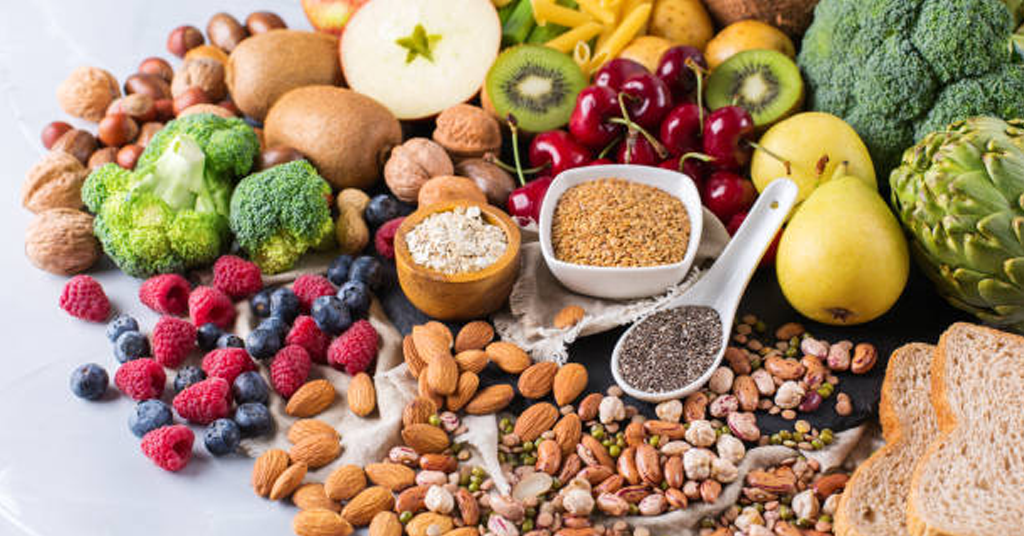Why do we need fiber?
For some people, the word fiber conjures up images of the Metamucil or psyllium used to relieve constipation. Others equate it to dry, flavorless, or unpleasant “health” foods. But did you know that there are actually seventeen different types of fiber? It’s true! Not only that, they are found in a wide array of tasty, colorful foods and come with a host of health benefits.
What Is Fiber Anyway?
Fiber is simply the indigestible part of the plant-based foods we eat because it can’t be broken down and absorbed by the intestinal tract. There are seventeen kinds of fiber, but they can be broken down into two basic categories: soluble and insoluble fibers.
Soluble Fiber
Soluble fibers dissolve in water or other fluids to form a gel-like substance. Thus, they arrive in the large intestine, where they feed the friendly bacteria and microbes living there.
Health benefits of soluble fiber include:
- Improved digestion
- Decreased inflammation
- Reduced risk of certain cancers
- Lowered chance of heart disease
- Reduction in LDL cholesterol
- Healthy, stable blood sugar levels
- Increased satiety
- Better weight management
Many plant-based whole foods are rich in soluble fibers, and the list includes avocados, apples, citrus fruits, carrots, beans, peas, oats, and flax seeds.
Insoluble Fiber
Insoluble fiber does not dissolve when it is mixed with fluids. Instead, it absorbs liquids and binds materials together. Therefore, it adds bulk to stools, making them soft, well-formed, and easy to pass. Getting enough insoluble fiber is key to well-regulated bowel movements!
Additional benefits include:
- Better intestinal health
- Prevention of diverticulitis and other bowel diseases
- Optimized removal of waste, toxins, and excess hormones
- Lower rates of cancer, especially colon cancer
Excellent sources of insoluble fiber include apples, berries, broccoli, cauliflower, carrots, potatoes, beans, whole grains, nuts, and seeds.
Diversity Is The Key
The gut is healthiest when there is a diverse population of microbes present. All of those microbes feed on different types of fiber. That is why eating a wide variety of whole foods is the key to optimal gut health.
While restricted diets can help in certain situations, they can actually cause more harm than good in others. When entire food groups are removed from the diet, the variety of friendly microbes in the gut is depleted because some are deprived of their preferred food source. For example, low carb or paleo diets only provide ten of the seventeen types of fiber. Ketogenic diets typically only provide about four types of fiber.
To maintain healthy, diverse gut flora, try to include as many of the following plant-based food categories as possible:
- Colorful vegetables
- Cruciferous vegetables and leafy greens
- Tubers and root vegetables
- Fruits
- Mushrooms such as white, crimini, shitake, or reishi
- Intact whole grains and pseudo-grains like gluten-free oats, brown rice, wild rice, quinoa, and buckwheat
- Legumes, including peas, lentils, and beans
- Nuts like almonds, walnuts, or pecans
- Flax, chia, sunflower, or pumpkin seeds
How Much Fiber Is Enough?
Most Americans are not eating nearly enough fiber. The average intake in the U.S. is 15 grams per day. Unfortunately, that is only about half of what is needed for optimal gut health. 30-40 grams of fiber per day is closer to ideal for most people. Optimize your intake by:
- Filling half your plate with veggies.
- Including a couple of servings of fruit every day.
- Only eating whole, intact grains.
- Adding 1-2 Tablespoons of nuts or seeds to salads or smoothies.
- Including peas, beans, or other legumes as often as possible.
Do you need help optimizing your diet or improving your gut health? Dr. Sisu can help you discover the foods that work best for you and restore balance to your gut. Stay tuned for our upcoming Restore Gut Solution where we are going to guide you through a gut healing program!

